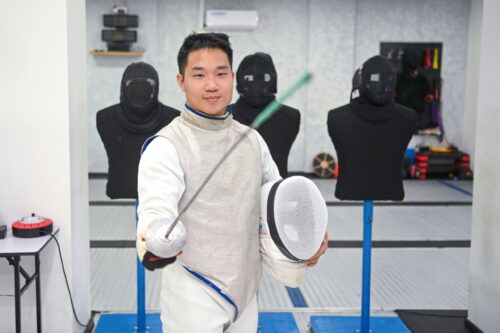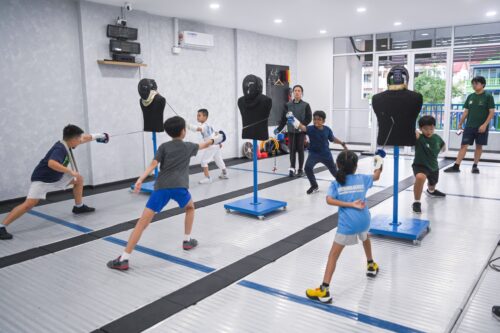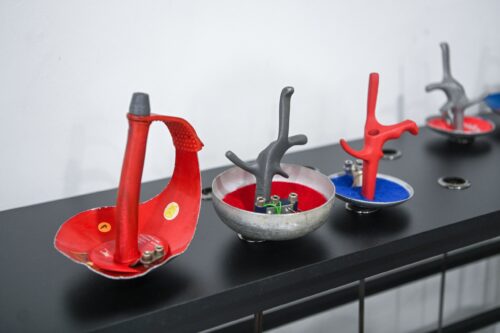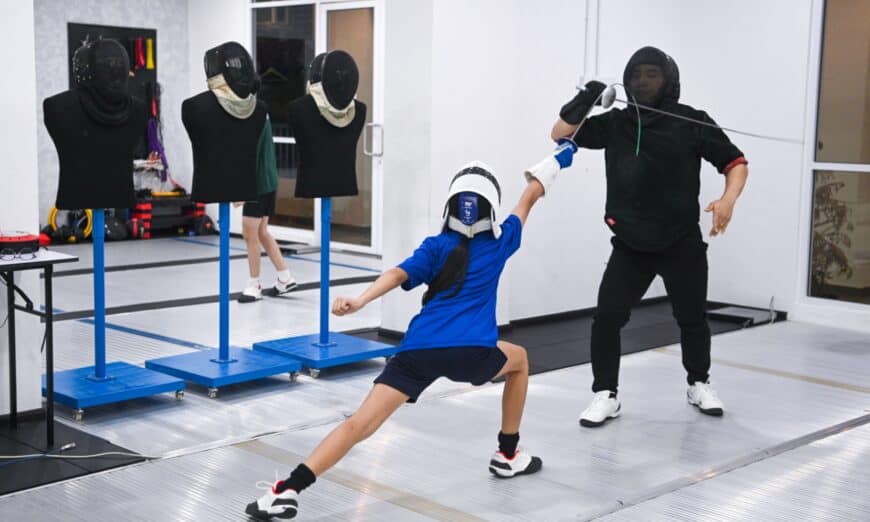AT JUST 30, Kenny Cheah has already dedicated more than half his life to fencing, and now, through his club Fencing Zone, he is on a mission to make the sport a household name in Penang and Malaysia.
Founded in 2023 at The Sun, a high-rise development in Sungai Nibong, before relocating to Tanjong Tokong last year, Fencing Zone started modestly with just 10 fencers.
Today, the number has grown to 80 active members, not including students trained through school programmes.
“I am very happy we have more fencers now, but it does not stop here. This is just the beginning,” Cheah said with conviction during an exclusive interview with Buletin Mutiara on Sept 22.
Cheah’s own journey began at the age of 12, when he first picked up a fencing blade. By the age of 13, he was already competing at the national level in Sukma 2008, where he went on to participate in subsequent editions and eventually secured two bronze medals.

He also represented Malaysia at international competitions, including the Junior Commonwealth Under-21 Fencing Championships at just 14, and later at the Southeast Asia Fencing Federation (SEAFF) Games, where he again won bronze.
“We really had to fence levels beyond us. But it has always been in my head and mind that fencing can be something known in Malaysia,” he recalled.
For Cheah, fencing is more than just medals and achievements. He believes it is a sport that sharpens both the body and the mind.
“Everything you are looking for in a sport is there in fencing. It is a combat sport but with minimal risks compared to boxing or other martial arts.

“Your opponent is not a dummy, you need discipline, focus and the ability to think fast,” he explained.
Fencing Zone now has four coaches, who juggle their full-time jobs while training the athletes. Cheah himself works full-time in a company and often rushes to the club after office hours.
“Weekdays are usually one-to-one classes after work. On weekends, I start at 9am and finish around 3 or 4pm. Sundays, after church, I go straight to fencing.
“Instead of just scrolling through my phone, I would rather do something worthwhile and get tired than do nothing and still feel tired,” he said.
Currently, Fencing Zone runs two tracks, one for general development of the sport and another for a competitive group of 10 fencers who train three to five times a week.

The goal? To prepare a new generation of athletes for Sukma 2026.
“In 2026, we want to develop those aged 12 to 14 to be competitive.
“Here, we do not just believe in winning or losing. It is about building character. As long as there’s progress, the heart is full,” he said.
Despite its growth, fencing still faces challenges. One is awareness.
“Some people criticise us, saying no one knows fencing. But if we really want to make it work, we can make it work,” Cheah stressed.
Another challenge is the cost of equipment. A full package of gear — including uniform, mask, and weapon — costs up to RM2,000. However, Cheah pointed out that fencing gear lasts long and usually only requires a one-time investment.
The club also received support from the Youth and Sports Ministry under the Sports Matching Grant (GPS), helping to ease expenses for events.
Cheah is convinced fencing has all it takes to appeal to Malaysians.
“Fencing is an open-skills sport where you can do anything, from defending yourself and attacking your opponent in your own way.
“It is safe and exciting, and it builds discipline. That is why we believe it deserves to be a mainstream sport in Malaysia,” he said.
Story by Kevin Vimal
Pix by Siew Chia En

